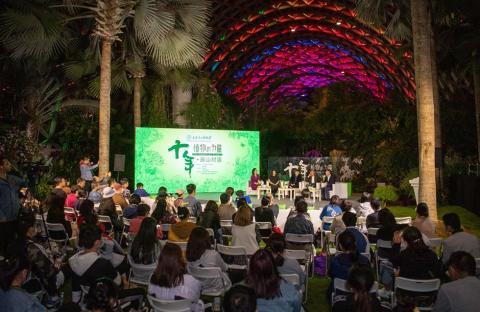
Local experts are working on herbal remedies to treat COVID-19, Hu Yonghong, chairman of the International Association of Botanic Gardens’ Asian branch, told a meeting in Shanghai.
Experts from Shanghai Chenshan Botanical Garden are investigating the effectiveness of peony and Chinese skullcap in reducing inflammation in the lungs caused by COVID-19, Hu said at a talk on “The Power of Plants” at the garden.
By studying the genome sequencing of Chinese skullcap, experts have found how baicalein is formed in the plant, providing an important basis for artificial biosynthesis of this effective ingredient against COVID-19, Hu said.
“Now, over 90 percent of drugs are synthetic drugs. We don’t need to pick up so many wild plants. So, we have to put more effort into understanding why these herbs work,” he said.
Hu, also executive director of the garden, said botanical gardens not only showcase the beauty of plants but also work to integrate nature into the urban landscape.
“We select proper plants to grow in cities and make urban plants grow better,” he said. “However, most cities don’t have a plant-friendly environment.”
Currently, Chenshan is exploring the adoption of the “sponge city” concept, “vertical greenery” and other new methods to create urban green space, he said.

